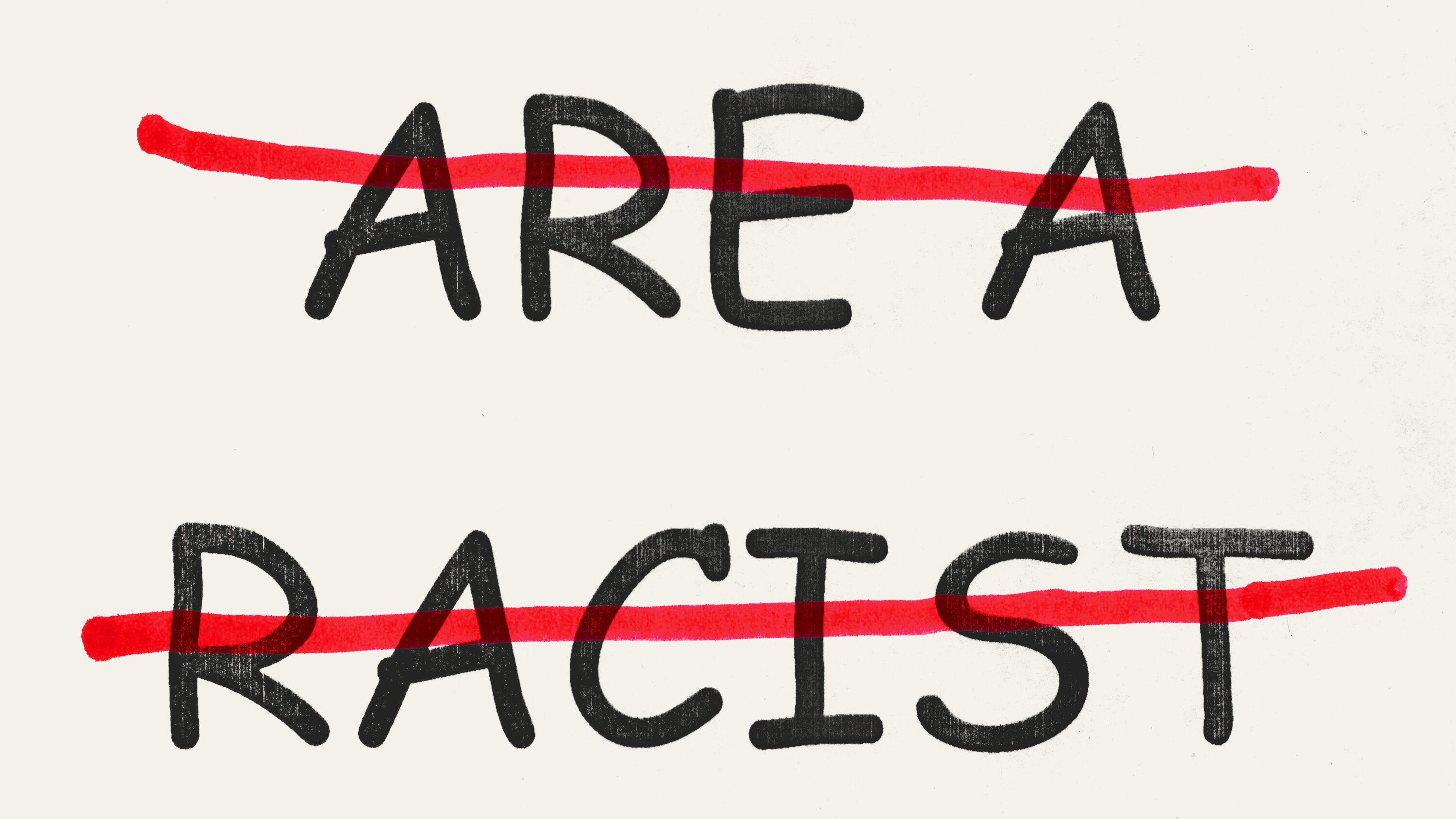In today's society, discussions around race and racism have reached a pivotal point, igniting passionate debates and fervent arguments. The phrase "proven racist by the racist prover" encapsulates a critical examination of how individuals or institutions may label others as racists, often without substantial evidence. This trend raises significant questions about the validity of accusations and the implications of being labeled a racist in an increasingly polarized world. As these conversations unfold, it becomes crucial to scrutinize the motives behind such labels and the impact they have on individuals and communities.
Racism is a complex and deeply ingrained issue that manifests in various forms, from overt actions to subtle biases. However, the act of labeling someone as a racist can sometimes be a weapon wielded without fairness or context. The phrase "proven racist by the racist prover" highlights the irony and contradictions that can arise when accusations of racism are made. It challenges us to reflect on the criteria used to determine what constitutes racism and who gets to decide. This article aims to delve into this concept and explore its implications on personal reputations and societal perceptions.
As we navigate through the murky waters of race relations, it is essential to consider the motivations behind accusations of racism. Are they grounded in genuine concern for social justice, or do they stem from personal biases and agendas? By examining these questions, we can begin to understand the complexities of being deemed a racist and the factors that contribute to such labels. Join us as we dissect the nuances of being "proven racist by the racist prover" and what it means in our contemporary discourse.
What Does It Mean to Be Proven Racist by the Racist Prover?
The phrase "proven racist by the racist prover" serves as a provocative lens through which we can examine the dynamics of racism accusations. Essentially, it refers to the notion that individuals or entities may label others as racists based on their own prejudices or flawed interpretations of actions and words. This situation creates a paradox, as the accuser may themselves harbor racist beliefs or biases, thus undermining the legitimacy of their accusations. Understanding this concept is crucial in navigating discussions about race and accountability.
Are There Clear Criteria for Identifying Racism?
Identifying racism is often a subjective endeavor, leading to varying interpretations of what constitutes racist behavior. Some may argue that overt acts of discrimination are the only clear indicators, while others believe that subtler forms of bias, such as microaggressions, should also be considered. This discrepancy highlights the need for a unified framework to assess and address racism effectively. Without clear criteria, accusations of being a "proven racist by the racist prover" can become muddied and misinterpreted.
How Can Personal Bias Affect Accusations of Racism?
Personal biases play a significant role in how individuals interpret the actions and words of others. A person’s background, experiences, and beliefs shape their perception of what is deemed racist. As a result, someone who has experienced racism may be more sensitive to perceived slights, while others may dismiss them. This subjectivity can lead to inconsistencies in how accusations of racism are made and can contribute to the phenomenon of being "proven racist by the racist prover."
What Are the Consequences of Being Labeled a Racist?
Being labeled a racist carries profound consequences, both socially and personally. The stigma attached to such a label can lead to ostracism, damaged reputations, and strained relationships. Individuals accused of racism may find themselves at the center of public scrutiny, regardless of the validity of the accusations. This reality underscores the importance of careful consideration before labeling someone as a racist, as the ramifications can be far-reaching.
Can Accusations of Racism Be Weaponized?
Unfortunately, accusations of racism can sometimes be weaponized for personal or political gain. In a society that increasingly prioritizes social justice, some individuals may exploit the label of "racist" to silence dissenting opinions or discredit opponents. This manipulation not only undermines genuine efforts to combat racism but also dilutes the impact of legitimate accusations. The concept of being "proven racist by the racist prover" highlights this troubling trend, as it raises questions about the integrity of those making such claims.
Is There a Path Towards Reconciliation?
Despite the complexities surrounding accusations of racism, there is a path towards reconciliation and understanding. Open dialogue, education, and a willingness to confront one’s own biases are essential steps towards healing and growth. By fostering an environment where individuals can engage in meaningful conversations about race, we can work towards dismantling the barriers that perpetuate misunderstanding and division. This effort requires both accountability and compassion, recognizing that we are all capable of growth and change.
Conclusion: Navigating the Complexities of Racism Accusations
As we grapple with the implications of being "proven racist by the racist prover," it is essential to approach the topic with nuance and empathy. Racism is a multifaceted issue that requires careful examination and understanding. By acknowledging the complexities of accusations and the motivations behind them, we can foster a more informed and constructive dialogue around race. In doing so, we can move towards a society where discussions on race lead to progress rather than division.
| Personal Details | Bio Data |
|---|---|
| Name | [Insert Name] |
| Age | [Insert Age] |
| Occupation | [Insert Occupation] |
| Nationality | [Insert Nationality] |
| Known For | [Insert Notable Works or Achievements] |
Embracing Wellness: The Journey Of Black Yogi Nico Marie
Unpacking The Joe Rogan Fanny Pack Phenomenon
Whimsical Beauty: The Allure Of Watercolor Koi Fish Tattoos


